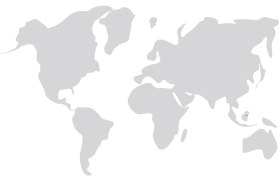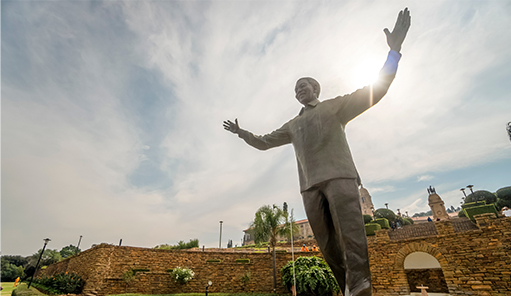What are South African people like?
South Africans are known for being among the friendliest people in the world. In fact, a 2024 survey found that South Africans are among the most agreeable people in the world, exhibiting deep empathy, understanding, and hospitality toward both strangers and loved ones. Below are some of the prominent South African cultures you can expect to encounter while in the Rainbow Nation.
View this post on Instagram
What is Indigenous South African Culture?
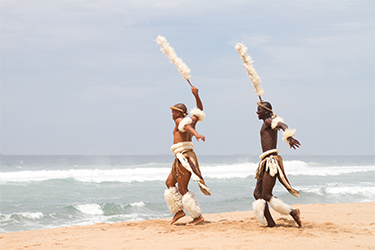 Indigenous South African culture is rooted in tribal heritage originating from Xhosa, Zulu, and Sotho tribes. These cultures are present throughout South Africa, displaying a strong focus on family, community, and reverence for both elders and ancestors.
Indigenous South African culture is rooted in tribal heritage originating from Xhosa, Zulu, and Sotho tribes. These cultures are present throughout South Africa, displaying a strong focus on family, community, and reverence for both elders and ancestors.
Roots of Indigenous Culture
The earliest inhabitants of South Africa were the Khoisan people, who can trace their lineage back 100,000 years, making them the direct descendants of the earliest humans. This has equipped the Khoisan with a unique genome, distinguishing them from every other group on the planet.
The Khoisan originally consisted of two groups: the Khoekhoe, who specialised in herding livestock, and the San, who specialised in gathering plants and hunting animals. Khoisan people also pioneered tool-making techniques like heat-treating stone and creating spear tips.
Around 400 AD, the Khoisan would be joined by the Bantu people of Eastern and Central Africa, who introduced metallurgy, farming, and adobe construction. These two groups would eventually give rise to the Zulu, Xhosa, and Sotho people as we know them today.
Elements of Indigenous Culture
Every indigenous culture in South Africa has its own unique language, traditions, foods, dances, and beliefs. South Africa has 11 officially recognised languages, nine of which are indigenous languages, and six dialects of Khoisan are considered the original indigenous languages of the region.
- Languages: Indigenous languages include isiZulu, isiXhosa, isiNdebele, siSwati, Sesotho, Setswana, Sepedi, Tshivenda, and Xitsonga. Officially recognised dialects of Khoisan include Khoekhoegowab, !Orakobab, Xirikobab, N|uuki, ǃXunthali, and Khwedam.
- Foods: Popular foods among indigenous cultures include samp and beans, amasi (a sour milk drink), and Morogo (a dark green leaf often called “African Spinach”). Meats (nyama) and traditionally fermented alcohol (umqombothi) are commonly enjoyed in traditional settings, especially weddings, funerals, and tribal meetings.
- Religious Beliefs: Indigenous cultures often practise a blend of Christianity and ancestral worship. This unique combination has created a socio-cultural distinction between those who align with indigenous traditions and other groups in South Africa.
What is Afrikaner Culture?
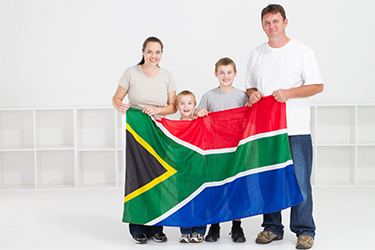 Afrikaner culture refers to the ethnic and cultural descendants of predominantly Dutch settlers who made the Cape Colony their home. However, many individuals with both German and French heritage also identify as Afrikaners, meaning the majority can trace their lineage back to European origins.
Afrikaner culture refers to the ethnic and cultural descendants of predominantly Dutch settlers who made the Cape Colony their home. However, many individuals with both German and French heritage also identify as Afrikaners, meaning the majority can trace their lineage back to European origins.
Roots of Afrikaner Culture
Afrikaner culture traces its roots back to Dutch colonialism in the 17th century. Many Afrikaner settlers were traders who set up businesses in the Cape Colony before eventually making it their permanent home. This was a common occurrence, resulting in many new settlers who would later become known as Afrikaners.
Afrikaners developed their own unique language called Afrikaans. While it originally evolved from Dutch, Afrikaans incorporates elements of other European languages like French and German, as well as indigenous languages such as Bantu and Xhosa.
Afrikaners often speak Afrikaans as their first language, English as their second, and sometimes indigenous languages. It is very common for not only Afrikaners, but virtually all South Africans to be multilingual to some degree.
Elements of Afrikaner Culture
Afrikaner culture is typically centred around family, whether it be family outings or having a braai (barbecue) on weekends. Farming, homesteading, and rearing livestock remain an important part of their cultural identity. In recent years, Afrikaans music has also gained nationwide popularity.
- Foods: Afrikaner food culture has a few prominent dishes, including braai (flame-grilled meats), potjiekos (stew cooked in a three-legged cast iron pot over a fire), and a bredie (a lamb stew cooked with vegetables). Snacks like biltong and droëwors are also very popular.
- Religious Beliefs: Afrikaner culture is strongly rooted in Christianity and traditional Christian values.
- Sports: Afrikaner culture is typically associated with sports like rugby and football, with both watching and participating seen as opportunities to connect with friends and family.
What is Cape Malay Culture?
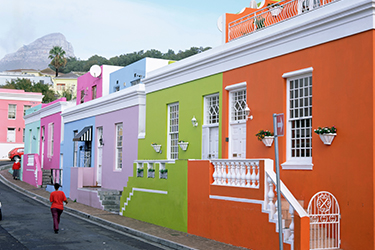 The term “Cape Malay” refers to both an ethnic group and a cultural identity. It’s generally used as a broad term to describe mixed-race individuals residing in the Cape Flats. However, not all individuals of mixed descent subscribe to this culture.
The term “Cape Malay” refers to both an ethnic group and a cultural identity. It’s generally used as a broad term to describe mixed-race individuals residing in the Cape Flats. However, not all individuals of mixed descent subscribe to this culture.
Roots of Cape Malay Culture
Cape Malay culture traces its roots back to enslaved Southeast Asian peoples, particularly from Indonesia, Malaysia, and The Philippines, as well as the Khoisan and European settlers. Many attribute this diverse heritage to the arrival of the Dutch East India Company led by Jan van Riebeeck in Cape Town in 1652.
Cape Malay culture consists primarily of English and Afrikaans, with the latter having a unique dialect within the culture, often mixing the two in what’s known as “Afrikaaps”. This dialect is unique to the Cape Flats and spoken nowhere else in South Africa.
Cape Malay culture is unique because, unlike other South African cultural groups, it incorporates individuals of different ethnicities, races, religions, languages, and traditions. These differences are what solidify the culture, enabling people to draw strength from diversity.
Elements of Cape Malay Culture
Cape Malay people celebrate their identity through foods, traditional celebrations, languages, dialects, dances, music, and so much more.
- Religion: Cape Malay culture is religiously diverse but primarily consists of people who practice Islam and Christianity. There are also individuals who practise Buddhism or identify as agnostic or atheist.
- Food: Cape Malay food is incredibly diverse reflecting its mixed heritage. Popular Cape Malay foods are samosas (triangular-shaped pastry pockets, deep-fried, filled with a savoury spicy meat mixture), Koeksisters (sugary dough balls), breyani (a spicy meat/chicken dish with rice), and the Gatsby (a foot-long sandwich with steak, chicken eggs, lettuce, tomato, spices, and sauces).
- Dance: An extremely important cultural event in Cape Malay heritage is the “Tweede Nuwe Jaar” (Second New Year) parade on January 2nd. Here, the Cape Minstrel Carnival, known as the “Kaapse Klopse”, participate in a vibrant festival featuring thousands of minstrels in colourful costumes, dancing, singing, and playing musical instruments such as the “ghoema” drum, trumpets, and tambourines.
Moving to South Africa? Choose AGS Movers!
Experience South African culture firsthand with AGS Movers! We offer professional moving and relocation services from anywhere across the globe.
Whether you’re moving to Cape Town, Johannesburg, Durban, or Pretoria, our team of professionals will ensure a stress-free, seamless moving experience for you and your loved ones.
South Africa’s cultural richness is waiting for you. Let AGS Movers help you settle in with ease, so you can focus on embracing your new life. Get in touch with us today and take the first step towards your move.

